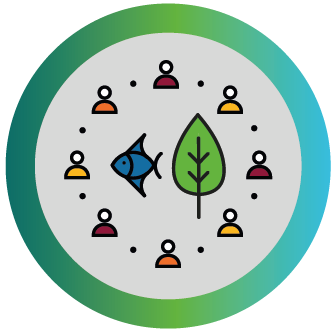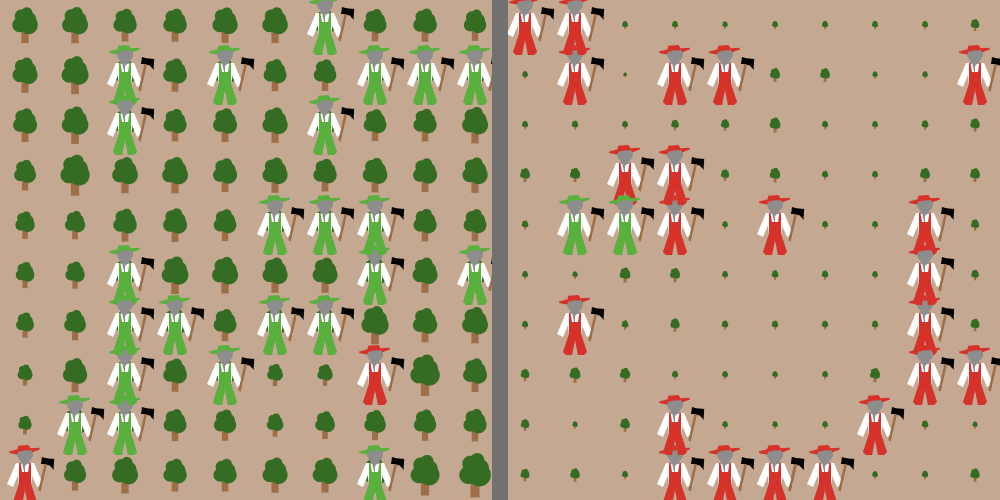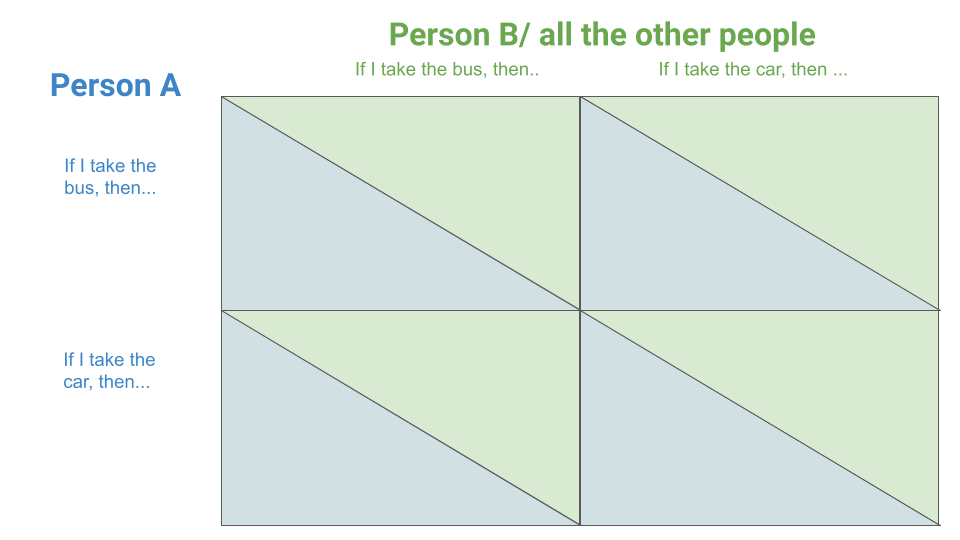
Commons game
In a classroom simulation game with changing conditions students develop strategies for the use of a common resource so that the profit for the entire group is maximized.
This NetLogo computer model extends the model Two Foresters and introduces a bigger and more complex population structure.
It is a model of a simple social-ecological system consisting of a population of foresters, subdivided into two communities, and a regrowing resource (trees). The foresters harvest from the trees at sustainable/modest or at greedy rates. Students observe how outcomes for individual foresters and for communities are influenced by the different compositions of modest and greedy foresters within communities, making them reflect on the dilemma between individual short-term benefit and long-term community benefits.


In a classroom simulation game with changing conditions students develop strategies for the use of a common resource so that the profit for the entire group is maximized.

Students reflect on the causes and consequences of human behaviors in situations of social interactions, and are introduced to the payoff matrix as a helpful tool to represent motivations and outcomes of behaviors.

An interactive introduction into concepts of ecology, behavioral ecology, and sustainability with a computer simulation of a simple social-ecological system.
OpenEvo is an educational innovation project from the Department of Comparative Cultural Psychology at the Max Planck Institute for Evolutionary Anthropology.
Evolve the future of education with us!